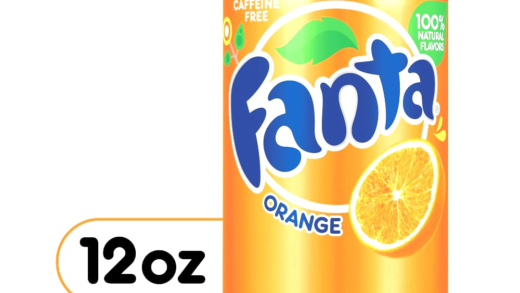This article explores ultra-processed foods, their health risks, and practical tips for reducing intake. It highlights the link between these foods and inflammation, chronic diseases, and offers healthier alternatives. Mindful eating is encouraged to enhance food choices and promote overall health.
What Are Ultra-Processed Foods?
Ultra-processed foods are items that undergo significant industrial processing and contain ingredients not typically found in a home kitchen. These foods often include additives like artificial flavors, preservatives, and sweeteners, making them significantly different from whole or minimally processed foods. Examples of ultra-processed foods include sugary drinks, packaged snacks, instant noodles, and reconstituted meat products. Unlike whole foods, which retain their natural form, ultra-processed foods are engineered for convenience and taste, often leading to increased consumption.
The Link Between Ultra-Processed Foods and Inflammation
Research indicates that ultra-processed foods can trigger inflammation within the body. These foods often contain high levels of sugar, unhealthy fats, and refined carbohydrates, all of which can provoke an inflammatory response. When consumed regularly, they may contribute to chronic inflammation, a condition linked to various health issues. Studies show that diets rich in ultra-processed foods can lead to higher levels of inflammatory markers, suggesting a direct correlation between these foods and increased inflammation.
Chronic Diseases Associated with Ultra-Processed Foods
Numerous chronic diseases have been linked to the consumption of ultra-processed foods. For instance, obesity, heart disease, and type 2 diabetes are prevalent among individuals who frequently consume these products. The high levels of sugar and unhealthy fats contribute to weight gain and metabolic disorders. Furthermore, some studies suggest a connection between ultra-processed food intake and certain types of cancer, highlighting the broader implications of these dietary choices on long-term health.
New Research Findings on Health Risks
Recent studies have shed light on the health risks associated with ultra-processed foods. A comprehensive study found that individuals consuming high amounts of these foods had a greater risk of developing cardiovascular diseases. Moreover, research published in reputable journals points to the role of ultra-processed foods in exacerbating mental health issues, such as anxiety and depression. These findings underscore the importance of understanding the potential dangers of a diet high in ultra-processed foods.
Recognizing Symptoms of Inflammation
Symptoms of inflammation can vary but often include fatigue, joint pain, and digestive issues. Other common signs may involve skin problems, such as rashes or acne. Recognizing these symptoms is essential, as they can indicate underlying health issues related to diet. By paying attention to the body’s signals, individuals can make informed decisions about their food choices and potentially mitigate the health risks associated with ultra-processed foods.
Healthier Alternatives to Ultra-Processed Foods
Finding healthier alternatives to ultra-processed foods is crucial for maintaining good health. Instead of reaching for a bag of chips or sugary drinks, consider these options:
- Fresh Fruits and Vegetables: These provide essential vitamins and minerals without the additives found in processed foods.
- Whole Grains: Opt for whole grain bread, brown rice, or quinoa instead of white bread or instant rice. Whole grains are packed with fiber and nutrients.
- Lean Proteins: Choose grilled chicken, fish, or legumes over processed meats like hot dogs or deli meats.
- Nuts and Seeds: These are great snacks that offer healthy fats and protein without the unhealthy additives.
- Homemade Meals: Preparing meals at home allows you to control ingredients and avoid ultra-processed items.
Incorporating these alternatives can significantly reduce the health risks associated with ultra-processed foods and promote overall well-being.
How to Identify Ultra-Processed Foods
Identifying ultra-processed foods is essential for making healthier choices. Here are some tips for recognizing these foods:
- Read Ingredient Labels: Look for long lists of ingredients, especially those that include artificial additives, preservatives, and sweeteners.
- Check for High Sugar and Salt Content: Ultra-processed foods often have elevated levels of sugar and salt. Products with over 10 grams of sugar per serving are typically ultra-processed.
- Avoid Foods with Unfamiliar Ingredients: If you can’t pronounce it, it’s likely a chemical additive that doesn’t belong in your diet.
- Look for Marketing Buzzwords: Terms like “diet,” “low-fat,” or “sugar-free” often indicate processing. These products might still be unhealthy.
By learning to read labels and understanding what ingredients to avoid, you can better identify ultra-processed foods in your diet.
The Role of Nutrition Beyond Avoiding Processed Foods
Nutrition plays a broader role in health than just avoiding ultra-processed foods. To enhance your diet:
- Balance Your Plate: Include a variety of food groups—vegetables, fruits, proteins, and whole grains—to ensure adequate nutrient intake.
- Stay Hydrated: Drinking plenty of water is crucial. Sometimes, our bodies confuse thirst for hunger, leading to unnecessary snacking.
- Mindful Eating: Pay attention to what you eat. This practice can help you make healthier choices and recognize when you’re full.
- Plan Your Meals: Planning ahead can prevent impulsive purchases of ultra-processed foods when you’re hungry.
Understanding the importance of a balanced diet and mindful eating can significantly improve your health, reducing the risks associated with ultra-processed food consumption.
Practical Tips to Reduce Ultra-Processed Food Intake
Reducing ultra-processed food intake is crucial for better health. Here are some practical steps to help cut down:
- Plan Your Meals: Planning meals ahead can help avoid last-minute decisions that lead to choosing ultra-processed options.
- Cook at Home: Preparing meals from scratch allows you to control ingredients and avoid additives found in processed foods.
- Keep Healthy Snacks Handy: Stock your pantry with nuts, fruits, and yogurt to prevent reaching for chips or candy.
- Stay Informed: Educate yourself about nutrition and food labeling to make better choices while shopping.
- Gradual Changes: Instead of cutting out all ultra-processed foods at once, gradually reduce their presence in your diet. This approach is more sustainable and less overwhelming.
Implementing these tips can lead to a significant reduction in ultra-processed food consumption, which in turn can enhance your overall health.
Mindful Eating and Food Choices
Engaging with your food choices is essential for a healthier lifestyle. Mindful eating encourages awareness and appreciation of what you consume. Here are some ways to foster mindfulness:
- Eat Slowly: Take your time with meals. Chewing thoroughly and savoring each bite can enhance satisfaction and prevent overeating.
- Listen to Your Body: Pay attention to hunger and fullness cues. This practice helps you make better decisions about when and what to eat.
- Avoid Distractions: Try not to eat while watching TV or scrolling through your phone. This can lead to mindless eating and increased intake of ultra-processed foods.
- Reflect on Your Choices: Consider why you choose certain foods. Are they based on cravings, convenience, or habit? Understanding your motivations can help you make healthier decisions.
- Explore New Foods: Experiment with different fruits, vegetables, and whole grains. Discovering new tastes can make healthy eating enjoyable.
By engaging mindfully with your food choices, you can cultivate a healthier relationship with food, ultimately leading to better nutrition and well-being.





Comments are closed.